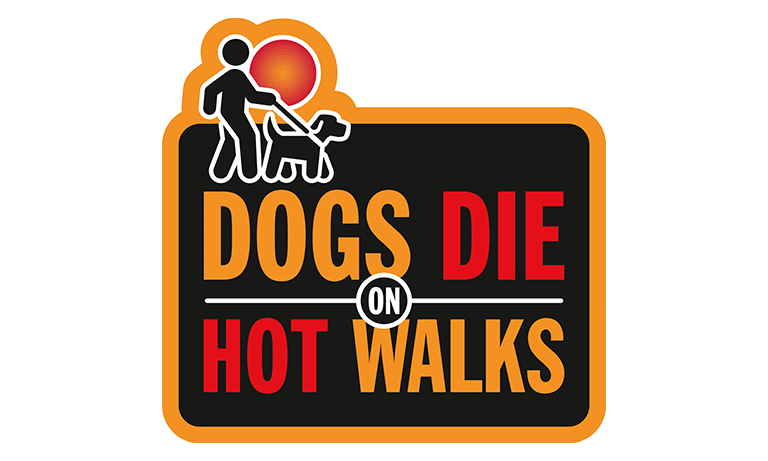New British Veterinary Association President calls for animal welfare alongside client choice to be at the heart of CMA recommendations
26 Sep 2024
Alongside their annual campaign to warn dog owners of the risks of leaving dogs in hot cars, BVA has joined coalition calls warning about the dangers of taking dogs out on walks in hot weather.

Animal welfare and veterinary groups who warn about the real and serious dangers of leaving dogs in cars are this year also highlighting the risks of walking dogs during hotter weather, including sunstroke and overheating, as well as burning their pads on scorching pavements.
Pet owners are being urged to learn the early warning signs of heat-related illness so they can avoid putting their dog at risk, and also know what action to take in an emergency.
Dr Dan O’Neill, Associate Professor Companion Animal Epidemiology at the Royal Veterinary College, said vets see dogs with a range of issues:
“Heat-related illness can lead to organ failure, brain damage and ultimately death.
“Most people know that dogs die in hot cars, but the reality is that more than 10 times as many dogs need veterinary treatment for heat-related illness following exercise as for being overheated in cars.
“It can take weeks for a dog to acclimatize to hot weather, so after a spell of cold winter, periods of hot weather can be particularly dangerous.”
Esme Wheeler, RSPCA dog welfare specialist, said owners can provide a paddling pool and make frozen dog treats to keep their pets cool and entertained if they’re worried about missing exercise during hot weather.
She added: “The truth is, walking dogs in hot weather can be a silent killer. When a heatwave is forecast, we all start making plans for enjoying the outdoors and soaking up the sunshine, and for those of us with dogs, this often includes bringing them along. While the majority would never leave our dogs in a car on a hot day, or even take our dogs for a really long walk in the heat, many people may still be putting their dogs at risk even on a short walk, or taking them to places such as fields and beaches with little or no shade.
“All breeds of dog are at risk, but if your dog has an underlying health condition, especially one affecting their breathing, then they could overheat more easily, as well as overweight dogs, dogs with double coats, and some larger and flat-faced breeds.
“We have long-campaigned that dogs die in hot cars, but this year we’re highlighting that dogs die on hot walks, too. The message remains very simple - never leave a dog in a hot car because ‘not long’ is too long, and when it comes to walks, ‘if in doubt, don’t go out.’
The Dogs Die in Hot Cars coalition is urging pet owners to learn the early warning signs of heat related illness and know how to take action in an emergency.
Dr O’Neill advises:
---------------------------------------------------------------------------------------------------------------------------------
Battersea Dogs & Cats Home, Blue Cross, British Parking Association, British Veterinary Association (BVA), Dogs Trust, The Kennel Club, The Mayhew Animal Home, National Animal Welfare Trust, The National Police Chiefs Council (NPCC), PDSA, RSPCA, Scottish SPCA, #TeamOtisUK, Woodgreen Pets Charity and RVC VetCompass have teamed up to spread the message: Dogs Die in Hot Cars and Dogs Die On Hot Walks.
Get tailored news in your inbox and online, plus access to our journals, resources and support services, join the BVA.
Join Us Today